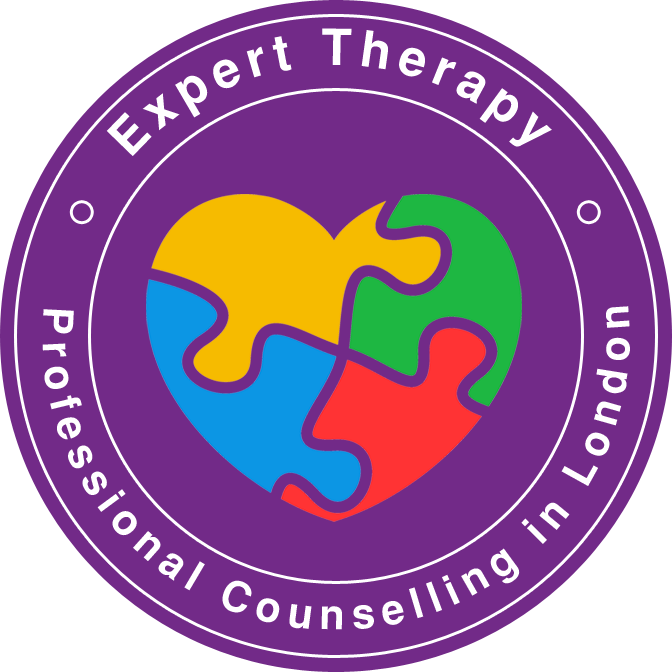Person Centred Therapy
Person-Centred Counselling in London
- Do you want a therapist who sees past your coping mechanisms and believes in you and your potential?
- What about a therapy where you set the agenda, not the therapist?
What is person-centred therapy?
Person-centred psychotherapy is a form of open-ended talk therapy based on the idea that each of us possesses all the inner resources we need to thrive. In order to access and utilize those resources, we simply need someone to assist us.
Under the humanistic umbrella, it’s also known as ‘client-centred therapy’ or ‘Rogerian therapy’, after its famous founder, psychologist Carl Rogers. According to humanistic psychology, we all possess untapped potential.
Key things to know
By creating a safe space for you to ‘self-actualise’, a person-centred therapist encourages you to discover within yourself the most authentic and empowered version of yourself.
- Rather than focusing on what is wrong with you, it emphasizes what is right with you
- It does not see the relationship as one between doctor and patient, but as one between equals
- The therapist does not decide what to talk about; you do
- Therapy emphasizes the importance of your relationship with your therapist
- The present is just as important as the past, if not more so
- It is more important to be yourself in a free environment, rather than to have anyone ‘fix’ you.
What issues can it help me with?
Counselling from a person-centred perspective is a good all-rounder for a variety of issues, including:
Anxiety and stress
Anger issues
Bereavement and loss
Depression and low moods
Family issues
Life change and challenges
Relationship problems
Sexuality and identity issues.
Person-centred counselling at Expert Therapy London
At Expert Therapy, all of our psychologists and psychotherapists work from a humanistic perspective, and we also have therapists trained directly in person-centred therapy (scroll down to see their profiles).
To learn more or to schedule an assessment, use our booking form. You can find therapists in London and online.
Psychotherapy with a person-centred approach has many advantages
It is possible to achieve the following results through person-centred counselling:
- A sense of identity and self-belief that are stronger
- Developing a better sense of self and acceptance of others
- Relationships that are healthier
- You should be confident in your decision-making
- Taking a broader view of yourself and your life
- Wishing you the best for the future
- Openness to change and the ability to navigate it.
The core concepts
Modern talk therapies are based on the three ‘core conditions’ of person-centred therapy, which were once considered radical. In other words, they are congruence, authenticity, and unconditional positive regard.
You can recognize congruence when your therapist is their real self, instead of pretending to be all-knowing or superior to you.
When your therapist empathizes with you, he or she will not feel sorry for you, but respect your experiences and work to understand how you see the world and what you have experienced.
As a result of unconditional positive regard (UPR), you accept and respect others as they are, while also seeing their full potential.
What is a session like?
The sessions will take about 50 minutes each, and they will be held weekly. A person-centred counsellor will ask questions that lead to deep insights into your feelings, your blind spots, your needs, and your hopes. There will be empathy, understanding, support, and non-judgement from your therapist.
How many sessions will I need?
It can be a short or long-term therapy, with no limits on the number of sessions. In many cases, it is an open-ended conversation. In contrast to CBT, where you contract with your therapist for a set number of sessions, Rogerian therapy lets you see how it goes. Choosing the end point of your therapy sessions is something that you and your therapist must decide together.
What is Person-Centred Therapy?
The Benefits of Therapy According to Carl Rogers
Are you a good listener? Learning from Rogers’ Person-Centred Counselling theory
Which type of therapy is right for me? How to choose between different therapy approaches
Mearns, David & Thorne, Brian (1999) ‘Person-Centred Counselling in Action’. Sage Publications.
What is person-centred therapy (PCT)?
A person’s perception of themselves and why they see themselves is the focus of PCT. It helps you recognize the inner resources you have always had, then put those ‘inner tools’ to work so you can be the best, most empowered version of yourself.
Is person-centred therapy available on the NHS?
In the NHS, you are more likely to receive cognitive behavioural therapy (CBT) or a short form of psychodynamic therapy rather than person-centred counselling.
Does Expert Therapy offer person-centred in London?
Expert Therapy offers person-centred therapy in London and online. You can choose from several experienced therapists, so you’ll find the right one for you.
Who is Carl Rogers?
When Freudian-influenced psychodynamic therapy was the rage, Carl Rogers began his career as a psychologist. In contrast, he observed his clients did better when he recognized their power and sought what was right for them today instead of searching their past for what was ‘wrong’. The more present he was for his clients, and the more he saw them, the more they flourished and found their own inner resources. The humanistic psychology movement saw Rogers become a key player, and he went on to create person-centred therapy, which views the client as an equal to the therapist with empathy, authenticity, and respect.
How is person-centred therapy different to psychodynamic therapy?
- Instead of focusing on what’s wrong with you, it focuses on what’s right with you
- Though it refers to the past, it focuses more on the present and the future
- The therapist does not decide what to talk about; you do
- Clients and therapists work together, not as doctors and patients.

